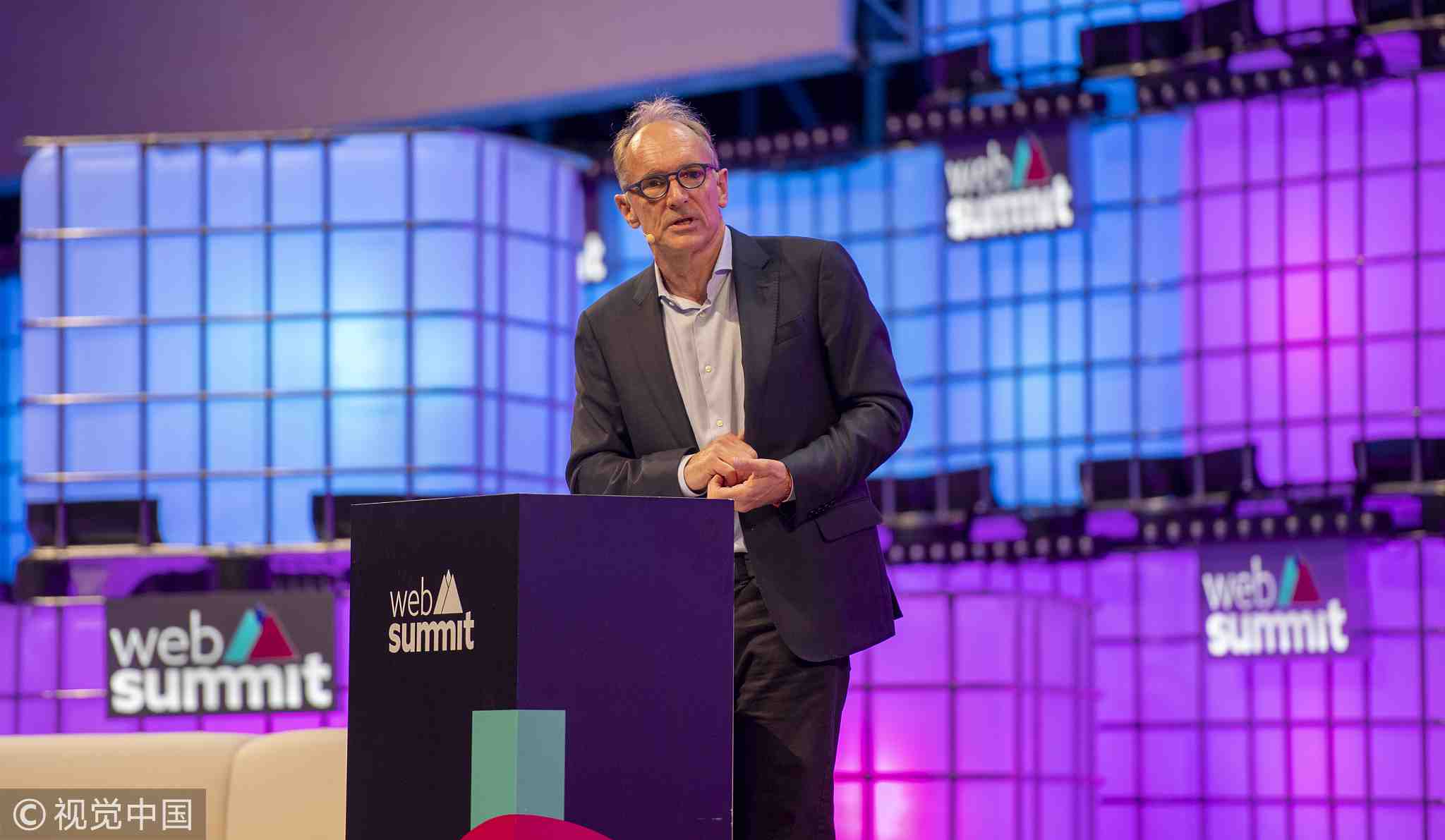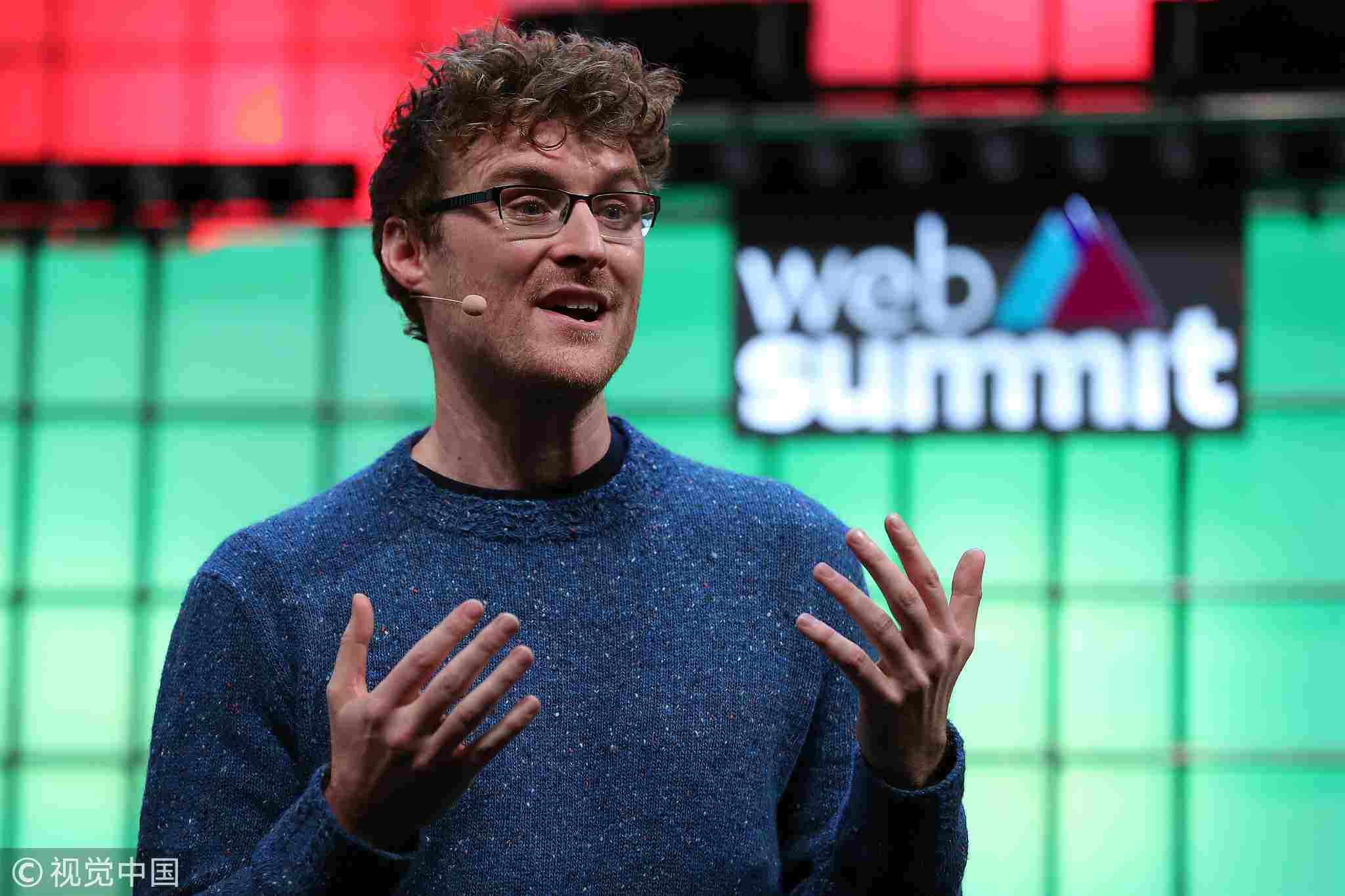
Internet
15:17, 06-Nov-2018
World Wide Web inventor wants new "contract" to make web safe
Updated
15:00, 09-Nov-2018
CGTN

Some 70,000 people are expected to take part in the four-day Web Summit, dubbed "the Davos for geeks", including speakers from leading global tech companies, politicians and start-ups hoping to attract attention from the over 1,500 investors who are scheduled to attend.
Tech firms now find themselves on the defensive, with critics accusing them of not doing enough to curb the spread of "fake news" which has helped polarize election campaigns around the world and of maximizing profits by harvesting data on consumers' browsing habits.
British computer scientist Tim Berners-Lee, who in 1989 invented the World Wide Web as a way to exchange information, said the internet had deviated from the goals its founders had envisaged.

Web pioneer Berners-Lee said many things had gone wrong with the internet. /VCG Photo
Web pioneer Berners-Lee said many things had gone wrong with the internet. /VCG Photo
"All kinds of things have gone wrong. We have fake news, we have problems with privacy, we have people being profiled and manipulated," he said in an opening address.
Berners-Lee called on governments, companies and citizens to iron out a "complete contract" for the web that will make the internet "safe and accessible" for all by May 2019, the date by which 50 percent of the world will be online for the first time.
"Going through a funk"
He has just launched Inrupt, a start-up which is building an open source platform called "Solid" which will decentralize the web and allow users to choose where their data is kept, along with who can see and access it.
Solid intends to allow users to bypass tech giants such as Google and Facebook. The two tech giants now have direct influence over nearly three quarters of all internet traffic thanks to the vast amounts of apps and services they own such as YouTube, WhatsApp and Instagram.
Employees of Google, Facebook and other tech giants have in recent months gone public with their regrets, calling the products they helped build harmful to society and overly addictive.
Tech giants are also under fire for having built up virtual monopolies in their areas.

Web Summit's Irish chief executive Paddy Cosgrave says technology is going through "a funk". /VCG Photo
Web Summit's Irish chief executive Paddy Cosgrave says technology is going through "a funk". /VCG Photo
"I think technology is going through a funk... it's a period of reflection," Web Summit founder and CEO Paddy Cosgrave told AFP.
"With every new technology you go through these cycles. The initial excitement of the printed press was replaced in time by a great fear that it was actually a bad thing. Over time it has actually worked out OK."
Violent voices magnified
The problem with the current internet model is that negative content gets more attention online, and thus gain more advertisers, according to Mitchell Baker, the president of the Mozilla Foundation, a non-profit organization which promotes Internet innovation.
"Today everyone has a voice but the problem is... the loudest and often most violent voices get magnified because the most negative, scariest things attract our attention," she told AFP in a recent interview.
(Cover: Tim Berners-Le, director of the World Wide Web Consortium, delivers remarks on "A Contract for the Web" at the beginning of the opening night of Web Summit on November 05, 2018 in Lisbon, Portugal. /VCG Photo)
Source(s): AFP

SITEMAP
Copyright © 2018 CGTN. Beijing ICP prepared NO.16065310-3
Copyright © 2018 CGTN. Beijing ICP prepared NO.16065310-3